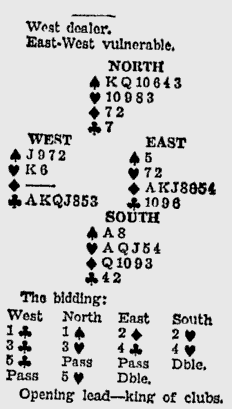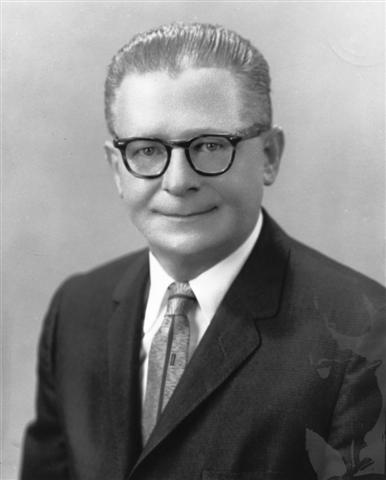Gadsden Times – 14 Oct 1964
There are all kinds of clues that a competent declarer uses to figure out the composition of the unseen hands. Once declarer knows the cards held by each opponent, it is usually mere child»s play for him to obtain the best result possible in that hand.
Here is a sample of good card reading by a declarer. South arrives at five hearts doubled on the bidding shown and West leads the king of clubs followed by the ace. Declarer ruffs in dummy, plays the ten of hearts, and takes a finesse, losing to the king. West returns a heart which South wins with the jack. Declarer now plays the ace and another spade finessing the ten!
When the finesse succeeds, South discards all his diamonds casino online on the spades and thus makes five hearts doubled. Without the unusual spade finesse he would go down one.
Now how is it that South is smart enough to finesse the ten of spades?
Is it a lucky shot? or is there a sound basis for the finesse?
The answer is that South knows the finessee will succeed. He has a sound basis for reaching this conclusion, judging from the bidding and play by the opponents. He can deduce that West started with four spades, which in turn indicates that he should finesse. Let»s see what South knows about West»s hand at the point when he decides to finesse.
The only positive knowledge he has of West»s length in any suit is that West started with two hearts. However, it is certainly reasonable to assume that West would have returned a diamond instead of a heart, if he had one, and the failure to do this clearly indicates that he is void of diamonds.
Since East raised clubs at one point in the bidding, showing at least three-card support, it follows that West»s eleven cards, excluding hearts must consist of precisely seven clubs and four spades. No other distribution is possible.
